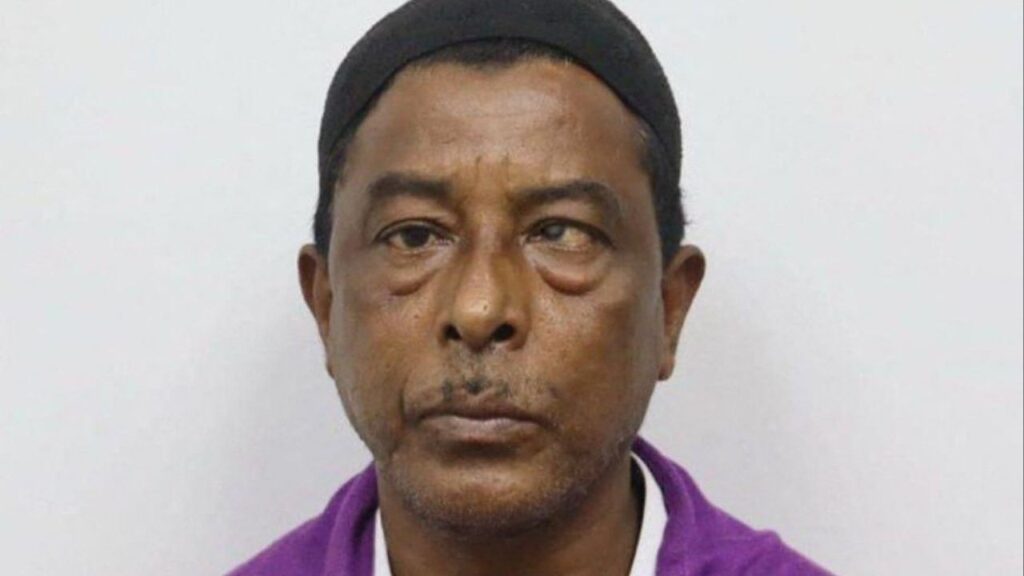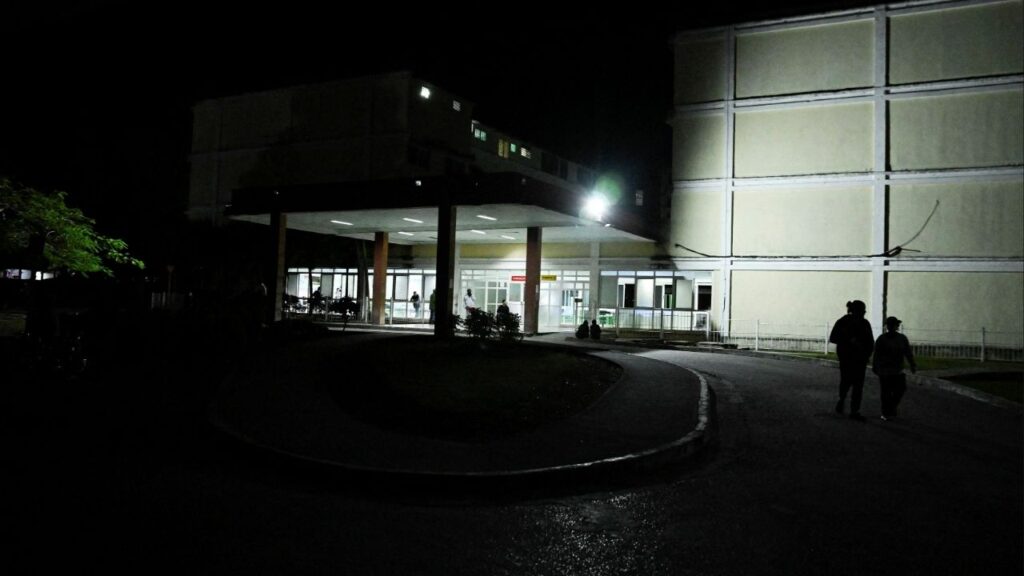Clashes between Israel and Hezbollah escalate, with strikes killing and wounding first responders and soldiers on both sides. (AP/Hassan Ammar)

- Lebanese Red Cross says Israeli strike wounded four paramedics and killed a Lebanese soldier during an evacuation mission.
- Hezbollah claims to have detonated a bomb killing Israeli soldiers; Israel reports striking 200 Hezbollah targets, killing 15 fighters.
- Iran-backed groups attack Israel, raising fears of a wider war; Biden says U.S. doesn't expect Israeli retaliation against Iran.
Share
|
Getting your Trinity Audio player ready...
|
BEIRUT — The Israeli military on Thursday warned people to evacuate a city and other communities in southern Lebanon that are north of a U.N.-declared buffer zone, signaling that it may widen a ground operation launched earlier this week against the Hezbollah militant group.
Israel has told people to leave Nabatieh, a provincial capital, and other communities north of the Litani River, which formed the northern edge of the border zone established by the U.N. Security Council after the 2006 war in a resolution that both sides accuse the other of violating.
At least eight Israeli soldiers have been killed in clashes with Hezbollah in southern Lebanon, where Israel announced the start of what it says is a limited ground incursion earlier this week. The region was meanwhile bracing for Israeli retaliation following an Iranian ballistic missile attack.
Strikes Kill and Wound First Responders
The Lebanese Red Cross said an Israeli strike wounded four of its paramedics and killed a Lebanese army soldier as they were evacuating wounded people from the south. It said the convoy near the village of Taybeh, which was accompanied by Lebanese troops, was targeted Thursday despite coordinating its movements with U.N. peacekeepers. There was no immediate comment from the Israeli military.
Another Lebanese soldier was killed by Israeli fire at an army post in the southern town of Bint Jbeil, according to the Lebanese military, which said it returned fire. A Lebanese security official, who spoke on condition of anonymity according to regulations, said the army post was hit by artillery fire.
An Israeli airstrike on an apartment in central Beirut late Wednesday killed nine people, including seven Hezbollah-affiliated civilian first responders. Israel has been pounding areas of the country where the militant group has a strong presence since late September, but has rarely struck in the heart of the capital.
Residents reported a sulfur-like smell following strike in Beirut, and Lebanon’s state-run National News Agency — without providing evidence — accused Israel of using phosphorous bombs, which would be a violation of international law. Human rights groups have in the past accused Israel of using white phosphorus incendiary shells on towns and villages in southern Lebanon. The Israeli military did not immediately respond to a request for comment.
Hezbollah has an armed wing with tens of thousands of fighters but it also has a political movement and a network of charities staffed by civilians.
Related Story: Israel Reports 8 Combat Deaths as Troops Battle Hezbollah in Lebanon and Fears ...
Fighting Escalates in Southern Lebanon
The Israeli military said Thursday that it had struck around 200 Hezbollah targets across Lebanon, including weapons storage facilities and observation posts. It said the strikes killed at least 15 Hezbollah fighters.
Hezbollah said its fighters detonated a roadside bomb when Israeli forces entered the Lebanese border village of Maroun el-Ras, killing and wounding soldiers. It was not possible to independently confirm the claims made by either side.
So far, ground clashes between Israeli forces and Hezbollah militants have been confined to a narrow strip along the border.
But hundreds of thousands of people have fled their homes, as Israel has warned people to evacuate from dozens of villages and towns in the south, telling them to relocate to areas that are around 60 kilometers (36 miles) from the border and considerably farther north than the Litani River.
Under U.N. Security Council Resolution 1701, which ended the monthlong 2006 war between Israel and Hezbollah, the militants were to withdraw north of the Litani, and Lebanon’s armed forces were to patrol the border region along with U.N. peacekeepers.
Neither Lebanon’s army nor the peacekeepers were capable of imposing any agreement on Hezbollah by force, and Israel says it defied the resolution and built extensive military infrastructure in towns and villages near the border. Lebanon has accused Israel of violating other parts of the resolution.
Israel says it is targeting Hezbollah after nearly a year of rocket attacks that began Oct. 8 and displaced some 60,000 Israelis from communities in the north. Israel has carried out retaliatory strikes over the past year that have displaced tens of thousands on the Lebanese side.
In recent weeks, Israeli strikes in Lebanon have killed Hezbollah leader Hassan Nasrallah and several of his top commanders. Hundreds more airstrikes across large parts of Lebanon since mid-September have killed at least 1,276 people, according to Lebanon’s Health Ministry.
The vast majority of recent strikes have been in areas where Hezbollah has a strong presence, including the southern suburbs of Beirut known as the Dahiyeh. But Israel has also carried out strikes in Palestinian refugee camps in Lebanon, and a strike in central Beirut earlier this week killed three members of a leftist Palestinian militant group.
Related Story: What to Know About Iran’s Missile Barrage and Israel’s Ground ...
Israel Says It Killed Senior Hamas Leader in Gaza
The escalating violence in Lebanon has opened a second front in the war between Israel and Iran-backed militants that began nearly a year ago with Hamas’ surprise Oct. 7 attack from the Gaza Strip into Israel.
The Israeli military said Thursday that it killed a senior Hamas leader in an airstrike in the Gaza Strip around three months ago. It said that a strike on an underground compound in northern Gaza killed Rawhi Mushtaha and two other Hamas commanders.
There was no immediate comment from Hamas. Mushtaha was a close associate of Yahya Sinwar, the top leader of Hamas who helped mastermind the Oct. 7 attack. Sinwar is believed to be alive and in hiding inside Gaza.
Fears of a Wider War Mount After Iranian Missile Attack
Iran-backed Houthi rebels in Yemen said they had launched two drones at Tel Aviv overnight. The military said it identified two drones off the coast of the bustling metropolitan area, shooting one of them down while the other fell in the Mediterranean Sea.
Hezbollah, Hamas and the Houthis are part of the Iran-led Axis of Resistance, which also includes armed groups in Syria and Iraq. They have launched attacks on Israel in solidarity with the Palestinians, drawing retaliation in a cycle that has repeatedly threatened to set off a wider war.
The region once again appears on the brink of such a conflict after Iran’s missile attack on Tuesday, which it said was a response to the killing of Nasrallah, an Iranian Revolutionary Guard general who was with him, and Ismail Haniyeh, the political leader of Hamas, who was killed in an explosion in Tehran in July that was widely blamed on Israel.
Related Story: Why Did Israel Send Troops Into Lebanon?
Both Israel and the United States have said there will be severe consequences for the missile attack, which lightly wounded two people and killed a Palestinian in the occupied West Bank. The United States has rushed military assets to the region in support of Israel.
President Joe Biden said he did not expect Israel to retaliate against Iran on Thursday and rejected the suggestion that the U.S. would grant permission for such an attack.
“First of all, we don’t ‘allow’ Israel, we advise Israel,” Biden said. “And nothing’s going to happen today.”



















